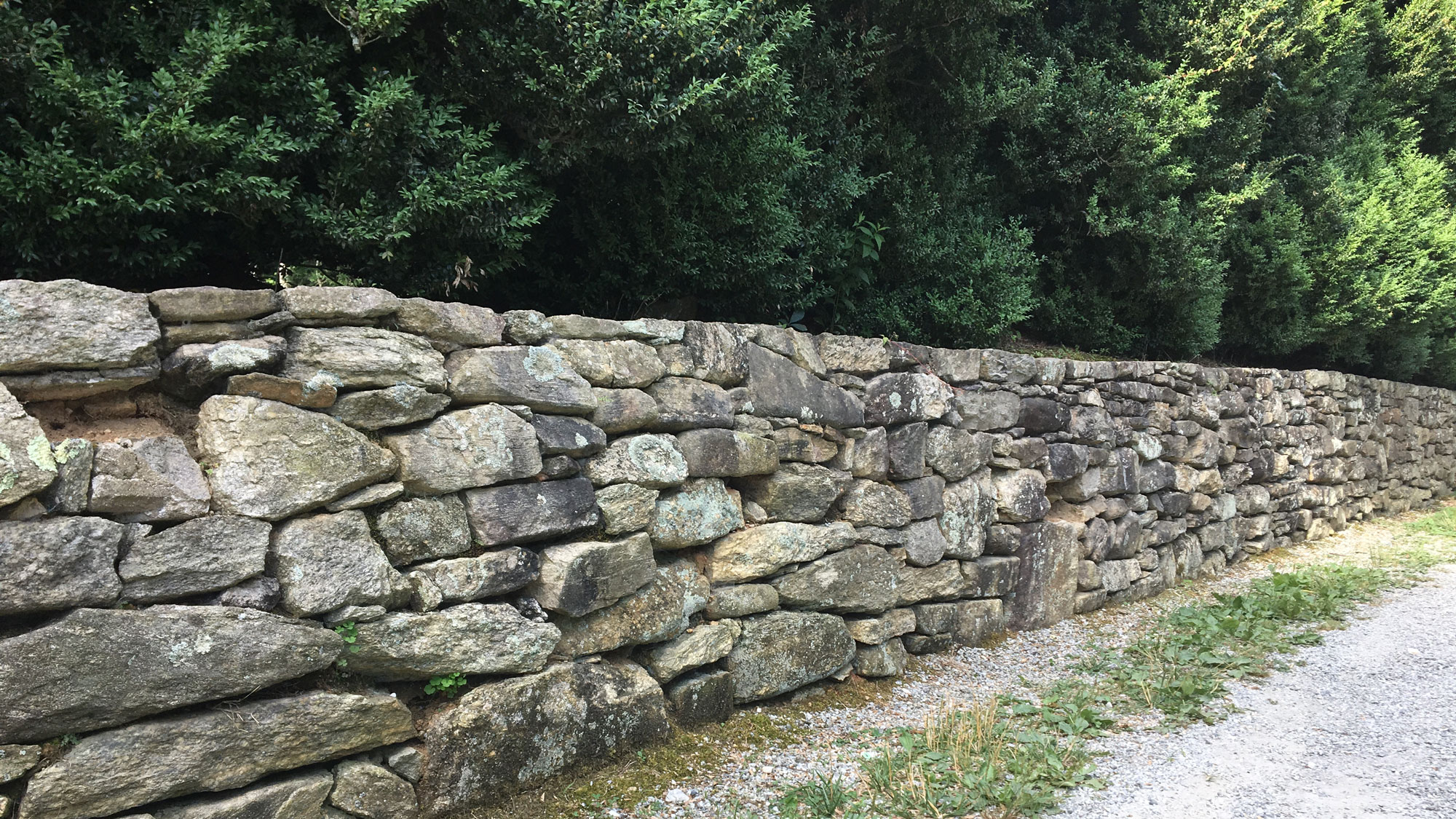When Lightning Strikes
/Bill Moss, Editor and Publisher of the Hendersonville Lightning. Photo Credit Andrew Dundas/Hendersonville Lightning
In 2010, life served up a bowl of lemons to Flat Rock resident Bill Moss. After 12 award-winning years as Executive Editor of the Hendersonville Times-News, Bill found himself as the central character and most prominent casualty in a story about corporate downsizing at the county’s largest paper.
Two years later, Bill picked himself up off the floor after an unexpected career detour, poured out a long cool glass of journalistic lemonade, and dubbed it The Lightning. His loss quickly morphed into a huge gain for the residents of Henderson County, and he’s never looked back.
Bill Moss grew up in Chapel Hill, NC. As he likes to tell the various civic groups who routinely invite him to speak, he “lived in Chapel Hill before he moved to North Carolina.” (We’ll pause here for a few seconds to let you think about that.) From an early age, he believes he was destined for a career as a writer. “Although I still wanted to be an FBI agent in the sixth grade,” he laughs, “I had a teacher tell me I should pursue writing.” Her words stayed with Bill and turned out to be prophetic.
Bill started his journalism career in earnest in college as a sportswriter for the Daily Tar Heel at UNC-Chapel Hill. The experience was sufficiently rewarding that upon graduation, Bill packed his worldly possessions into his Dodge Dart and struck out for the mean streets of Marshville, NC - now known for two famous former residents - Randy Travis of country music fame and Flat Rock’s favorite roving reporter, Bill Moss. As Bill explains, the 70s were a very interesting and inspiring time for young journalists. “We were all Watergate babies,” says Bill. “So we all wanted to get the scoop and speak truth to power and change the world.”
As Bill’s career in journalism progressed, he eventually found his way to Florida. In 1996 he was working the Tallahassee bureau of the St. Pete Times and building a good life with his wife Elizabeth, two children, and a boat. But North Carolina called him home, and he took a job as the Editor for the Daily Herald in Roanoke Rapids. He quickly proved himself to be an accomplished editor and word filtered back to Henderson County that he might be a good candidate for the Executive Editor position at the Hendersonville Times-News. He was offered the job in 1998 and Henderson County was first introduced to the man whose work ethic and energy leave many friends and acquaintances wondering how he packs so much into each day.
Bill’s career at the Times-News was a story filled with accomplishment and accolades, but capped off with a disappointing denouement. In retrospect, however, Bill is grateful for the unexpected career course correction. “I often say it's the best thing that ever happened to me,” he explains. “That transition led me to start the Lightning which continues to be the peak of not just my career, but of my work in life. I really feel it is what I can do to contribute to the good of the community and in my small way, the world.”
The very first issue of the Lightning hit the stands on May 9th, 2012. Bill still remembers the lead story of that historic edition. “We debuted the print issue the day after a local primary election with a big headline that said, “Voters Fire O’Connor.” Bill O’Connor had been kind of controversial as a County Commissioner and voters elected Grady Hawkins to replace him.”
The arrival of the Lightning in Henderson County represented a unique and pioneering approach to “hyper-local journalism.” Bill believes he tapped into a desire for more local news as traditional newspapers were being snapped up by outside ownership and offering less and less local reporting. “We don't just write about the biggest story, about what the County Commissioners did this week,” says Bill. “We try to get to Laurel Park and Mills River and Flat Rock and Saluda and Fletcher and cover their meetings and stories as well.”
The hyper-local niche proved to be a good home for the Lightning and Bill sees his paper as being one of two types of newspapers that will likely survive the advent of increasing digital distribution of news. “I think you really have two vastly different classes of journalism that are surviving. There are large flagship papers like The New York Times, The Washington Post, and The Wall Street Journal. And then you’ve got the little guys, and I'm among the littlest of the little. But we are a model of how a print product plus a digital product can survive on the local level.”
The Lightning comes out in print once a week and is best known for its coverage of local governance, politics, culture, history, and occasional features. Bill considers politics to be his journalistic wheelhouse. “I've covered politics on every level. From as local as you can get with planning boards in the smallest towns in whatever county I might've been covering, all the way up to the United States Congress.”
When asked to name his favorite story over the past eight years at the Lightning, Bill is ready with a quick and very decisive answer. “Frankly I think the best story we've ever ran was ‘Big Forest.’” Big Forest was the code name Sierra Nevada Brewing used for the property where they would ultimately build their Henderson Country facility. “I was always really humbled and gratified”, says Bill, “ that after just two years in business we already had the cache and the reputation to get that much cooperation from everybody involved with the recruitment of Sierra Nevada.”
“It was all very secretive,” explains Bill. ”At one point Chuck McGrady and a couple of other local officials flew on a private jet to Sierra Nevada’s headquarters in California without knowing when they left the runway in Asheville where they were going. But when they got there, they were able to sell the folks in California on the site. It was a real “story” story. It had a start and a middle and an end. It had character development. It had challenges and crises and left the reader wondering, ‘Oh, how are they going to fix this problem?’”
Benefiting from Bill’s combination of skill and tenacity, the Lightning quickly became known for excellence in journalism, and over the course of eigth years has won nearly 100 awards. “I think we average about eight or nine North Carolina Press Association Awards a year,” says Bill.
The Lightning’s success also made national news when it was featured in Forbes Magazine in December of 2015. Forbes titled their piece, Paper Lions, and wrote about Bill’s successful efforts to tap into the hyper-local news market. The article reads in part:
Buying or starting a local newsweekly isn’t for the faint of heart (or wallet). But for someone looking to shift a modest portion of assets into something fulfilling and potentially profitable, it’s still probably a better business proposition than opening a restaurant or an antique store — especially if financial rewards aren’t the only goal.
Reporting is the most important thing,’ says Moss. “And if I go out of business, I go out of business. But that’s what I think about when I wake up.”
All the awards and accolades, however, won’t pay the bills and the pandemic has created a new set of challenges for Bill’s small-fish enterprise trying to navigate the oceans of print and digital media that assail news readers every day. One thing that has helped was Bill’s decision last year to sell digital subscriptions in addition to his initial print subscriptions. The Lightning has been behind a paywall for a little over a year now and Moss is pleased with the reception. “That's been good as a business proposition. Definitely a good change to bring in an additional revenue stream.” Bill wrote a recent column identifying what it takes to keep the Lightning in print. “One reader very memorably said that the Lightening scratches the itch that this community has for news presented in a way that sates the audience's appetite for local information.”
At age 66, Bill Moss shows no sign of slowing down. When asked what keeps him going, he is prepared with an answer you might expect from a life-long news hound. “I wake up every day glad to be able to pursue a story, do an interview, cover a meeting, and get the scoop.” He is also quick to point out the able assistance he gets from his staff of Jan Chapin and Matt Mannine - both of whom have classic small business job titles that describe only a fraction of all the things they do to make the paper successful.
Like the lightning bolt that adorns the banner of his paper, Bill’s career has had its share of zigs and zags. But when it finally touched ground here in Henderson County, it revealed a man that can be best described as a force of nature. For Bill Moss, writing and reporting are more than a job. It is a life’s calling. “Most gratifying is serving the community and having people thank me for doing this. When I stop and think about the fact that we conceived of and birthed and managed to grow the Lightning from toddlerhood to what it is now, it's a good feeling.”
——-
Read the original “Big Forest: The Courtship of Sierra Nevada” story here. And a 2014 column Bill wrote entitled, “Why I made the Lightning.” Subscribe to the Lightning here.




